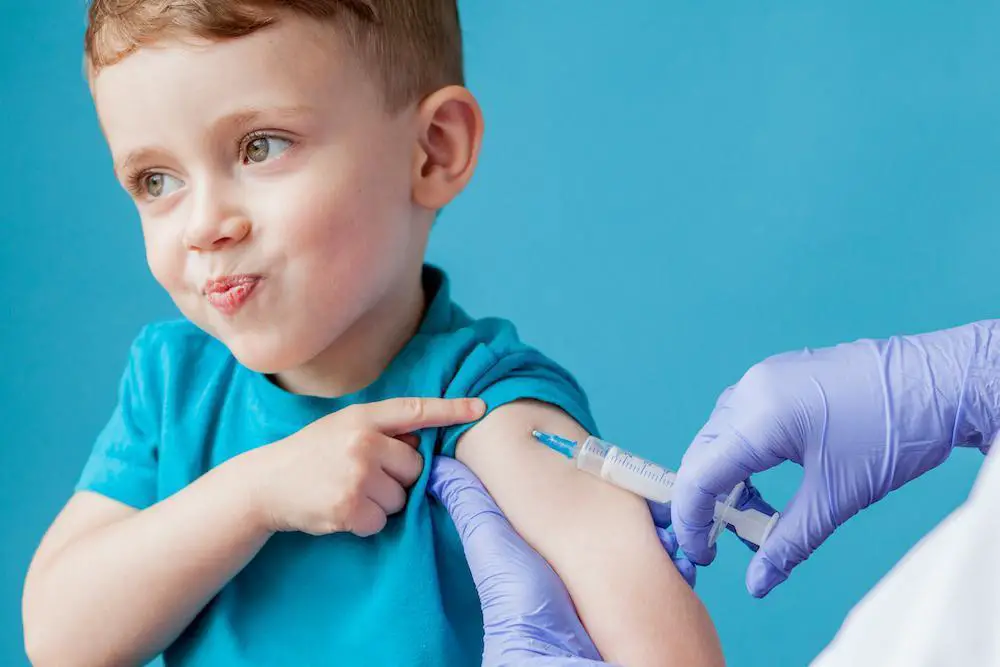


Children get a series of several different immunization shots during their first two years of life. Some of these shots include Hepatitis B, MMR (measles, mumps, rubella), DTaP (Diphtheria, Tetanus, Pertussis), Polio, Chicken Pox, PCV7 (pneumococcal), and Hib (Haemophilus Influenzae Type b). These shots are given during certain ages at the recommendation of your doctor.
Not all children should receive all shots, however, most will. If a child is or has been sick with he/she is due for shots, often doctors will recommend waiting until the child is healthy. If a child is ''at risk'' (has a poor immune system, respiratory problems, or other serious health concerns), often a doctor will not recommend certain vaccines or will have the child wait until a more stable point in the child's health to administer the shots.
There have been some studies that have suggested that certain shots (or properties in the shots, such as the preservative) cause various illnesses, such as multiple sclerosis, SIDS (sudden infant death syndrome), or autism. However, most of these studies have been discounted due to flaws in the research or confounding variables in the children that were tested (the children may have already had the illness/syndrome, such as autism, and the illness/syndrome became evident around the same time the shot was given). The chances of your child becoming sick from not getting a shot are much greater than getting another disease from an immunization shot itself. If a child does get sick from lack of immunization, the result could be a long, painful illness, paralysis, or death.
Parents who think their child will be safe because other kids are immunized may regret this decision too late. While the incidence of many diseases in the United States is very low, all of these diseases that we immunize for still exist in the world today. People traveling overseas or people from other countries traveling to the United States may be exposed to these diseases. There have been cases of outbreaks in recent times due to these very reasons.
There is a chance that your child may become slightly ill due to some vaccines. Most of the reactions include redness or soreness at the sight of the shot, slight fevers, and slight rashes, and with some vaccines (such as the chicken pox vaccine), your child may develop a slight case of the disease itself. However, the illness your child may experience from receiving a vaccine is much less severe than if he/she contracted the disease. In rare cases, more complications will occur from shots, especially if the child is allergic to certain properties in a shot.
It is difficult for any parent to see their child get a shot. Parents do not want to see their children hurt. However, parents will feel much more pain and/or guilt from making their children get their shots than the children will actually feel. Many medical professionals have recommendations for pain control to help you through this difficult time. Some will recommend giving your child some pain control (such as pediatric ibuprofen) prior to getting the actual shot. Be sure to talk to your doctor before doing this to ensure you give your child the proper dosage of the correct medicine.
There is an abundant amount of research on the internet about immunizations. The Immunization Action Coalition (IAC) http://www.immunize.org/news.d/cdc-resr.htm lists several important websites from the Center for Disease Control and Prevention (CDC). Remember, while shots may be painful for your child (and for you), the pain is temporary, and the alternative could be devastating.
Note: Please also check your spam or junk email folder.